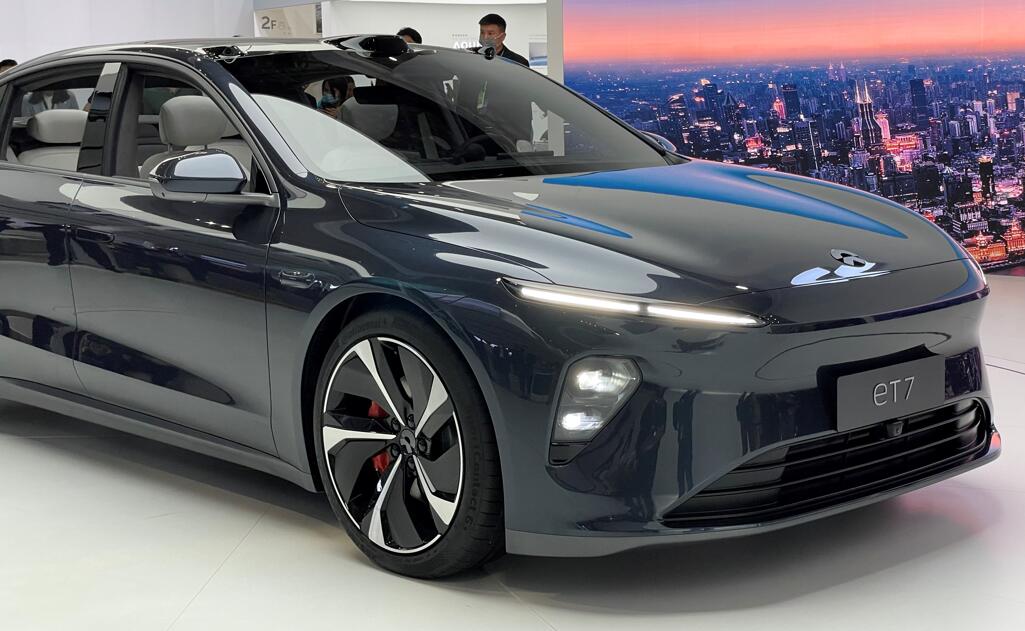Nio's shares are expected to begin trading in Hong Kong on March 10 under the stock symbol 9866.
(Image credit: CnEVPost)
Nio announced on February 28 that it would list in Hong Kong by way of introduction, without issuing new shares. Some of its already issued shares are expected to start trading on the Hong Kong Stock Exchange (HKEX) on Thursday, March 10.
As we are days away from investors being able to trade the stock in Hong Kong, we wanted to walk through what we know and answer some questions that investors may have.
How will Nio be listed in Hong Kong?
Nio will be listed in Hong Kong as a secondary listing, unlike its local peers Xpeng Motors and Li Auto, which both listed in Hong Kong last year as dual primary listings.
Nio, along with one of its largest shareholders, Tencent, will lend 41.4 million Class A ordinary shares to a designated dealer to facilitate the initial transaction.
The company's filing with the HKEX on March 7 shows that as of today it has 1,669,006,134 ordinary shares outstanding, including 1,392,212,202 Class A ordinary shares, 128,293,932 Class B ordinary shares and 148,500,000 Class C ordinary shares.
Nio will be traded on the HKEX in board lots of 10 Class A ordinary shares under the stock code 9866.
Who can trade Nio in Hong Kong?
Anyone with a Hong Kong stock account will be able to trade Nio's shares in Hong Kong.
Will Chinese mainland investors be able to trade Nio directly?
This is a complex question.
In the case of compliance, the answer is no.
Under current HKEX rules, secondary listings cannot be included in the Mainland-Hong Kong stock connect mechanism, meaning that mainland investors will not be able to trade Nio's shares traded in Hong Kong.
The stock connect mechanism was launched in November 2014 to facilitate investors from Hong Kong and the mainland to buy each other's shares.
The program contains two channels, Shenzhen and Shanghai, which operate independently. Xpeng is currently included in both channels, and Li Auto is expected to be included in one of them in March.
It is worth noting, however, that only Chinese mainland investors with securities account assets of more than RMB 500,000 are eligible to apply for accounts participating in the mechanism.
And officials from the China Securities Regulatory Commission said in late September last year that retail investors in China's capital market have exceeded 190 million, while small and medium-sized investors holding shares with market capitalization of less than RMB 500,000 account for 97 percent of the total.
This means that only 3 percent of investors, or 5.7 million, are eligible to apply to open accounts to trade stocks in the stock connect. Of those eligible investors, only a small percentage may have eventually opened the account.
In addition to the compliance route, there are currently a number of services in the regulatory gray area that allow Chinese mainland investors to directly trade stocks traded in Hong Kong as well as in the United States.
The best-known providers of such services in China include US-listed Futu Holdings as well as Tiger Brokers, which don't publish the percentage of their mainland clients, but it's safe to guess that they are over 50 percent.
These companies are trying to increase the percentage of overseas clients as it becomes more difficult for mainland investors to transfer funds into such accounts under increasingly strict regulations.
Why is Nio listing in Hong Kong?
With the US and Chinese governments remaining at odds over the audit papers for US-listed Chinese companies, listing in Hong Kong has become an important means for many companies to defuse investors' concerns about delisting risks.
Xpeng and Li Auto were listed in Hong Kong on July 7 and August 12 last year, respectively, becoming the latest after a number of companies including Alibaba, Netease, JD.com and Baidu.
By the end of last year, 15 US-listed Chinese companies had made secondary listings in Hong Kong, while only four companies had dual primary listings in Hong Kong: Xpeng, Li Auto, BeiGene, and Hutchmed, according to data from Yue Kai Securities.
Deutsche Bank analyst Edison Yu's team believes that the overhang about Nio's delisting from the US should have largely disappeared and the focus will shift to the expected production ramp-up of three new models starting in late March this year.
Yu's team believes that Nio's management wants to avoid raising capital against the backdrop of the stock's recent sharp decline.
Become A CnEVPost Member
Become a member of CnEVPost for an ad-free reading experience and support us in producing more quality content.
Already a member? Sign in here.


